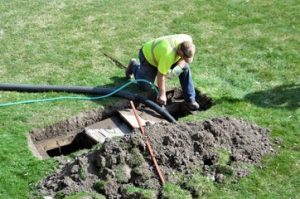Foundation Repair Nashville services are essential for maintaining the structural integrity, safety, and long-term value of residential and commercial properties. The foundation supports the entire structure, and when it becomes compromised, the effects can be felt throughout the building. Cracks in walls, uneven floors, and shifting doors are often early indicators of foundation issues. Professional foundation repair services address these problems at their source, preventing further damage and restoring stability.

Understanding the Importance of a Strong Foundation
A foundation serves as the base that distributes the weight of a structure evenly across the ground. It provides support for walls, floors, and load-bearing elements while resisting movement caused by soil changes and environmental conditions. When a foundation performs as intended, it helps ensure the structure remains level, secure, and durable.
Over time, natural settling, moisture fluctuations, and soil conditions can affect foundation performance. When these factors lead to movement or damage, foundation repair services become necessary to maintain structural integrity and prevent escalating issues.
Common Causes of Foundation Damage
Foundation damage rarely occurs without reason. Several underlying factors contribute to foundation problems, often working together to weaken structural stability.
Some of the most common causes include:
- Expansive soil that swells when moisture levels increase and contracts when dry
- Poor drainage that allows water to accumulate near the foundation
- Soil erosion beneath the foundation due to improper grading
- Plumbing leaks that saturate the soil under the structure
- Inadequate foundation design or construction practices
Understanding these causes helps foundation repair professionals develop effective and long-lasting solutions.
Warning Signs That Foundation Repair Services Are Needed
Foundation issues often reveal themselves through visible and functional changes within a property. Recognizing these warning signs early allows for timely intervention and reduces repair costs.
Common indicators include:
- Cracks in interior or exterior walls
- Uneven or sloping floors
- Doors and windows that stick or fail to align properly
- Gaps between walls, ceilings, or floors
- Visible cracking or shifting in the foundation itself
These symptoms should not be ignored, as they often indicate underlying structural movement.
The Risks of Delaying Foundation Repair
Delaying foundation repair can lead to increasingly severe structural problems. As foundation movement continues, it places additional stress on walls, floors, and framing. This stress can cause cracks to widen, materials to weaken, and systems such as plumbing and electrical components to become misaligned.
In addition to structural damage, unresolved foundation issues can reduce property value and complicate future repairs. Early foundation repair services help limit damage, reduce overall costs, and protect occupant safety.
How Foundation Repair Services Restore Stability
Professional foundation repair services follow a methodical approach designed to restore stability and prevent further movement. The process begins with a thorough assessment to identify the cause and extent of foundation damage.
Based on this evaluation, repair specialists implement targeted solutions to stabilize the foundation and redistribute structural loads. The goal is to correct existing problems while addressing contributing factors such as soil conditions and moisture management.
Common Foundation Repair Methods
Foundation repair services utilize a range of techniques tailored to specific issues. The chosen method depends on factors such as foundation type, soil conditions, and severity of damage.
Common repair methods include:
- Structural reinforcement to restore load-bearing capacity
- Stabilization systems that prevent further settlement or shifting
- Crack repair and sealing to strengthen foundation walls
- Drainage improvements to manage water around the foundation
Each method is selected to provide durable, long-term results.
Residential Foundation Repair Services
Residential foundation repair services focus on protecting homes and ensuring a safe living environment. Foundation issues in residential properties can affect comfort, safety, and overall property value. Uneven floors and cracked walls not only impact appearance but may also signal serious structural concerns.
Professional foundation repair services help homeowners address these issues efficiently. By stabilizing the foundation and correcting contributing factors, these services restore confidence in the home’s structural integrity and prevent recurring problems.
Commercial Foundation Repair Services
Commercial properties often experience foundation challenges due to heavier loads, larger building footprints, and constant use. Foundation problems in commercial settings can disrupt operations and pose safety risks to occupants and visitors.
Commercial foundation repair services are designed to address these challenges with minimal disruption. Professional planning and execution ensure structural stability while allowing businesses to continue operating safely whenever possible.
The Role of Drainage in Foundation Repair Services
Proper drainage is a critical component of effective foundation repair services. Excess water around a foundation can cause soil expansion, erosion, and increased hydrostatic pressure against foundation walls. These conditions contribute significantly to foundation damage.
Improving drainage systems helps regulate moisture levels and protect the foundation from future issues. Drainage solutions are often integrated into foundation repair plans to provide comprehensive protection.
Preventing Future Foundation Problems
While foundation repair services address existing issues, prevention is key to maintaining long-term stability. Proactive maintenance and monitoring help reduce the risk of future foundation damage.
Preventive measures include:
- Maintaining consistent moisture levels around the foundation
- Ensuring proper grading and drainage away from the structure
- Repairing plumbing leaks promptly
- Monitoring and sealing small cracks before they expand
- Avoiding soil disturbances near the foundation
These steps support ongoing foundation health and minimize the need for future repairs.
Why Professional Foundation Repair Services Matter
Foundation repair requires specialized knowledge and equipment. Attempting DIY solutions or relying on temporary fixes can result in incomplete repairs and ongoing problems. Professional foundation repair services focus on identifying the root cause of foundation issues and implementing effective, long-lasting solutions.
Experienced professionals evaluate soil conditions, structural damage, and environmental factors to develop comprehensive repair strategies. This expertise ensures repairs are both effective and durable.
Long-Term Benefits of Foundation Repair Services
Investing in professional foundation repair services provides lasting benefits. Restoring foundation stability improves structural safety, reduces the likelihood of recurring issues, and enhances property value. A stable foundation also protects other building components, minimizing future repair needs.
Foundation repair services contribute to peace of mind by ensuring the structure remains safe and functional over time. Proper repairs help preserve both the appearance and performance of the property.
Foundation Repair Services and Property Value
Foundation problems are a major concern for property owners and potential buyers. Unresolved foundation issues can significantly reduce property value and create obstacles during transactions. Professional foundation repair services address these concerns by restoring structural integrity and improving overall condition.
A repaired and stabilized foundation demonstrates responsible maintenance and increases confidence in the property’s long-term performance.
Conclusion on Foundation Repair Services
Foundation repair services are a vital investment in the safety, stability, and longevity of any property. From early warning signs to comprehensive repair solutions, understanding the importance of foundation repair empowers property owners to take timely action. Ignoring foundation issues can lead to extensive damage, while professional repair services help prevent costly and disruptive consequences.
By choosing professional foundation repair services and implementing preventive measures, property owners can protect their structures, maintain value, and ensure lasting peace of mind. A strong foundation remains the cornerstone of a secure and reliable property.


